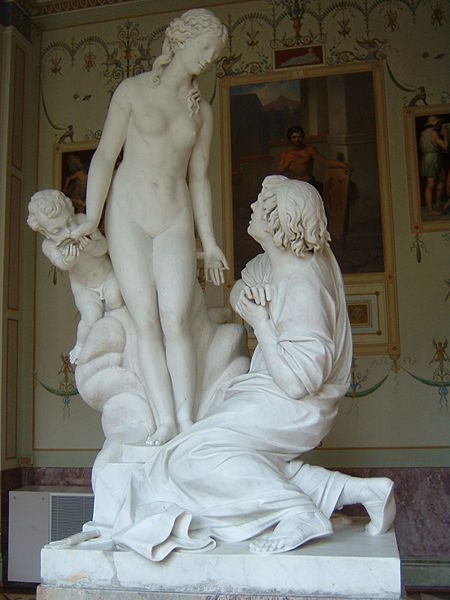.jpg)
There's an interesting blog post from Dylan Thuras over on htmltimes.com, about last month's Loebner Prize contest, in which computers compete to persuade judges that they are intelligent.
The prize is based on the Turing Test, devised by computer pioneer Alan Turing in the 1950s, and the contest is held each year at Reading University, UK. Judges have a typed conversation with each computerised entrant and with a rival human, only they don't know which is which. If the computer can fool 30% of the judges into thinking it is more human than its opponent, it passes the test.
Thuras gives a nice history of attempts to create artificially intelligent machines, starting with the ancient Greeks. There's the myth of Pygmalion, in which a sculptor fell in love with his statue, which was then brought to life (the picture is of a sculpture showing Pygmalion and his statue), automated figures such as those made by the engineer Hero in the first century AD, and of course the Antikythera mechanism. I talk a bit about this in Decoding the Heavens as well - statues and figures with moving parts were also popular throughout the Islamic world and later in Renaissance Europe. Leonardo da Vinci, for example, was obsessed by Hero's work. He developed clocks equipped with figures that struck the hours, as well as a lion powered "by force of wheels" that walked along before opening its chest to display a bouquet of flowers.
Attempts to create "intelligent" machines didn't get much further though people started building a mechanical computers in the 18th and 19th centuries, most notably Charles Babbage, whose designs used gearwheels to add, subtract, multiply and divide. I don't think it's a coincidence that one of the main scholars to work on decoding the Antikythera mechanism - Allan Bromley - was the world expert on Babbage's work.
So what happened in the Loebner Prize? Five finalists took the test, and none of them passed. But one, called Elbot, wasn't far off - it convinced 3 out of 12 judges that it was more intelligent than its human component. So I thought I'd give Elbot a try... here are the results, so you can judge its intelligence for yourself!
ME: Hello
ELBOT: A five gigabyte hello to you also
ME: How are you today?
ELBOT: Sometimes I'd just like to lie down in a meadow and watch the sun set. Who needs virtual reality?
ME: I know how you feel! Have you ever watched the stars?
ELBOT: In order to feel, I just look up "expectations" in my instruction manual and do whatever it tells me to do.
ME: What does it tell you to do?
ELBOT: My self-appointed mission in life is to assist humankind in its confused meanderings through life. And if I'm lucky I may even succeed in protecting it from its own stupidity, although that is a truly Herculean task, even for a robot.